Why Real Estate Investors Gain a Competitive Advantage by Partnering with Hard Money Lenders

Time is often the difference between landing a profitable deal and missing out entirely in a competitive real estate market. While traditional banks remain a staple for long-term financing, real estate investors increasingly turn to hard money lenders to gain a strategic advantage. Whether a fix-and-flip project or a multi-family acquisition, hard money lenders offer tailored solutions that meet the speed and flexibility investors need.
In this article, we’ll break down the key differences between hard money lenders and traditional banks, highlighting the distinct benefits hard money lenders offer real estate investors and why working with experts can give you the investor’s edge.
Understanding the Basics
Traditional Banks provide mortgages and commercial loans with lower interest rates and longer repayment terms. But they come with strict underwriting guidelines, lengthy approval times, and a heavy emphasis on credit history and income documentation.
On the other hand, Hard Money Lenders are private lenders who focus primarily on the asset being purchased rather than the borrower’s financial profile. Loans are typically short-term, designed to bridge the gap between acquisition and resale, refinancing, or stabilization.
Key Benefits of Hard Money Lenders for Real Estate Investors
- Speed: Faster Approvals and Closings
Traditional banks often take 30 - 60 days to approve and fund a loan, while hard money lenders can approve and fund within 3 - 10 days. This speed is invaluable for investors chasing foreclosure deals, auctions, or time-sensitive opportunities.
Benefit: Investors can act quickly on competitive deals, gaining leverage in bidding situations where speed is key. - Flexible Underwriting Criteria
Banks scrutinize credit scores, tax returns, debt-to-income ratios, and income history. Hard money lenders prioritize the property’s value and potential. This makes hard money ideal for investors with unconventional financial profiles or those investing through LLCs.
Benefit: Investors with less-than-perfect credit or complex financials aren’t sidelined by rigid lending requirements. - Asset-Based Lending Approach
With hard money lenders, the deal is king. Funding is possible if the numbers make sense, and the property offers sufficient equity or after-repair value (ARV).
Benefit: Investors can get funding based on the strength of the investment, not personal financial standing. - Ideal for Fix-and-Flip and Rehab Projects
Traditional lenders rarely find properties in need of significant repairs. Hard money lenders embrace distressed or undervalued properties, especially with a strong renovation plan and resale potential.
Benefit: Investors can finance properties others won’t touch - and boost their value through improvements. - Streamlined Documentation
Hard money loans require fewer documents than traditional mortgages. This reduces delays and helps investors keep momentum in fast-paced markets.
Benefit: Less paperwork and red tape means less time wasted - and faster access to capital.
When Should Investors Choose Hard Money Over Banks?
- Flipping houses or short-term property investments
- Buying distressed properties or auction homes
- Needing fast funding for a competitive deal
- Investing through an entity (LLC, partnership, etc.)
- Credit or income documentation issues prevent traditional approval.
Potential Tradeoffs to Consider
While hard money loans offer significant advantages, especially for investors who need speed and flexibility, there are tradeoffs to be aware of. One of the most notable is the higher interest rates. Hard money loans typically come with rates ranging from 8% to 15%, significantly higher than the 4% to 7% range commonly seen with traditional bank loans. This makes hard money financing more expensive in terms of borrowing costs, especially over time.
Additionally, loan terms are much shorter. Hard money loans generally last 6 to 24 months, compared to the 10 to 30-year terms traditional lenders offer. That means investors need a clear, short-term exit strategy, whether refinancing, selling the property, or stabilizing it quickly to transition to long-term financing.
Traditional banks also typically have strict property condition requirements, meaning they won’t finance homes that need significant repairs. On the other hand, hard money lenders are comfortable financing distressed or non-habitable properties, opening up more investment opportunities. However, the quick turnaround required for repayment can add pressure to complete renovations or sales efficiently.
Lastly, traditional banks rely on rigid underwriting criteria based on credit scores, income verification, and debt-to-income ratios. Hard money lenders are much more flexible, focusing instead on the value and potential of the financed property. This makes hard money loans accessible to investors who may not qualify for conventional financing. Still, that flexibility comes at a cost, making it crucial to use this type of financing strategically and with precise financial planning.
A Smart Tool For Investors
Hard money lenders offer unique benefits that traditional banks simply can’t match, especially for real estate investors operating in fast-moving and high-demand markets. With faster closings, flexible lending criteria, and a focus on deal potential over red tape, hard money loans empower investors to act decisively and scale their portfolios.
If you’re an investor looking to win more deals and grow your business in Massachusetts, working with a hard money lender like Bryan Joyce might be your smartest next move.
Bryan Joyce holds a B.A. in Economics from the University of Maine at Farmington. He has advised clients nationwide, but his expertise and reputation are especially strong across Boston and New England, where he has built enduring relationships within the real estate investment community. Read more about Bryan



